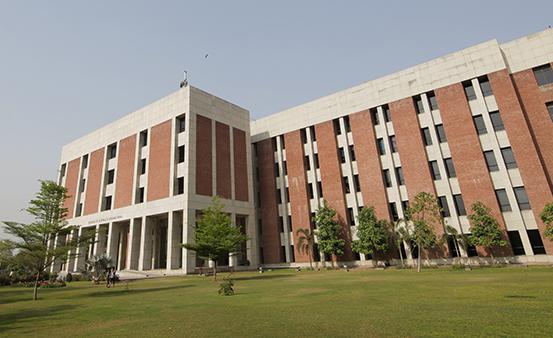
Today, in the business sector of Pakistan, Foreign Direct Investment (FDI) could be a real game changer and one that could prove to be a key breakthrough in resurrecting Pakistan’s faltering economy.
Realising the importance of Foreign Direct Investment, Professor Uzair Kayani, Visiting Assistant Professor at the Shaikh Ahmad Hassan School of Law (SAHSOL) indulged in bringing the legal and economic aspects of FDI in Pakistan to the limelight through his intensive research. Specifically undertaken for the American Business Forum (ABF), a conglomerate of a number of multinationals working within Pakistan, the research set to explore the dynamics of FDI.
Meanwhile, being an expert in commercial law, Professor Kayani was naturally drawn to the fields of economics and business. It was at this melting pot of ideas that he happened to encounter an intellectual question that why economically similar countries tend to have quite different levels of FDI. This moment of intellectual insight turned into a driving force for Professor Kayani to pursue the project. At the same time, his motive to take up this research was significantly demand driven and practical.
“In a developing country demand-driven research is of great importance and considering the influence that FDI has created in Pakistan’s economy, members of the industry and government are frequently looking for individuals with authentic and valuable insight on the subject,” explains Professor Kayani.
As for his project, he first looked at the historical perspective of FDI by analysing data that was already available in the form of newspaper articles announcing major economic activities related to FDIs and the industries were divided into specific segments. For all this extensive research, Fatima Wahla fully supported him as a research assistant.
“The data available through the State Bank is already segmented. This was used as the basis to collect detailed data on relevant transactions between businesses. An example is the widely covered merger between Mobilink and Warid. The information on these transactions is available in different forms of the media and the business and commerce sector. All this extensive research acted as raw data for further studies,” elaborates Professor Kayani.
The next step was to explore the legal implications of FDI. This happened to be a two-part analysis. The first part examined the enforcement aspect of FDI that dealt with the efficiency of the bureaucracy in implementing the laws. This was conducted using the World Bank Data Rankings of businesses and statistics. The second part involved looking directly at the laws; what the laws are, how are they implemented and how they reflect the trends shown. Some of these laws are linked to previous case laws which are also thoroughly analysed.
Professor Kayani states that FDI is extremely important for a developing country. He states that FDI helps in bringing foreign exchange, business expertise and acumen and it is also more secure than portfolio investment as the firms tend to have larger stakes in the business and do not immediately take off in case of emergencies.
With hard work, vision and perseverance, Professor Kayani can be at the centre of a far-reaching research that would provide both the government and business sector with very authentic and credible data on FDI. This could be significant for resurrecting Pakistan’s fledging and collapsing the economy in light of FDI’s leading role.








